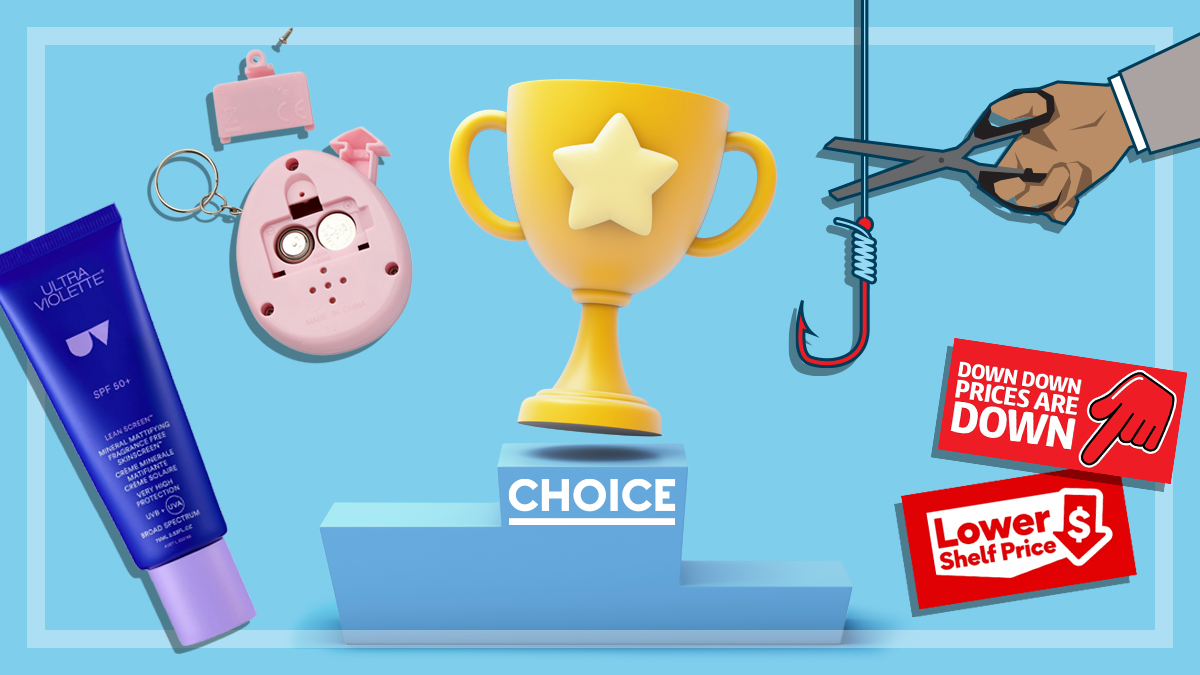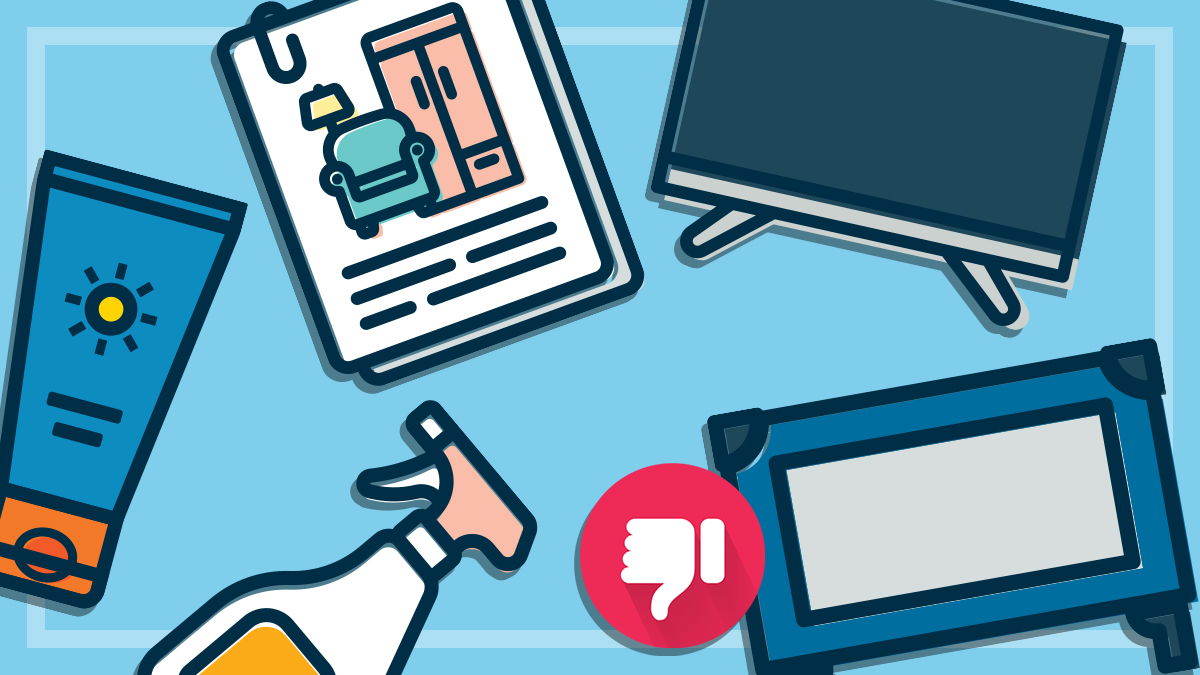Get our independent lab tests, expert reviews and honest advice.
Beware the hidden conditions in your user agreement

Download a piece of software. Install an app. Buy an ebook. Use a digital device. Sign in to an online service. As a consumer, almost everywhere you turn in the digital world you’ll find licence agreements, terms of use agreements and terms and conditions.
They’re the digital gatekeeper standing between you and that new program or new device you want to try or that new app or new ebook you want right away.
So do you stop to read the agreement before hitting ‘accept’? No, probably not. At that point in the transaction you’re usually a few clicks away from getting your download and don’t want to be held up with a lengthy bit of legalese.
And on that point, even if you read the agreement it probably wouldn’t make much sense, and you only have two choices: to accept and proceed or decline and find something else, which will most likely come with another user agreement anyway.
It’s like a digital maze where every twist and turn leads to the same digital gatekeeper with stop and go signs.
What is an end user licence agreement?
Terms of use, end user licence agreements (EULAs) and terms and conditions (‘Ts & Cs’) are the documents consumers face when interacting with the digital world.
They can run to several thousand words and go far beyond the scope of even the most highly committed consumers in terms of the time and the legal understanding needed to plough through them, particularly when you just want to get on with things and make your purchase.
But they should be taken seriously. User licence agreements are legal contracts between you and the publisher or developer of the digital products. They aim to restrict how you can use the product, limit your remedies if something goes wrong using the product, and generally reduce your consumer rights.
An unfair user agreement is an unfair contract
CHOICE believes that lengthy and overly complex contracts should be considered unfair. Standard form contracts can be convenient for consumers, but must be clear and easy to read.
Problem: Consumers don’t know what they’re giving up
User agreements attached to software, apps and other digital services are contracts – and contracts should be fair for consumers.
The terms should be reasonable and they should be easy to understand and presented in a standardised format so they can be compared.
They should be written in appropriate language and include a short summary so consumers can get the gist of the contract quickly and easily.
Problem: Too long and too complex to understand
Not too many people have studied Consumer Law 101 – that’s the job of the experts here at CHOICE.
We know that too many user agreements are complex, lengthy and written in a way that makes them hard to decipher and understand what consumer rights are being denied or limited and what exclusions or other caveats are being forced onto the consumer.
Problem: Consumers left with little choice
Consumers are faced with a ‘take it or leave it’ choice when faced with user agreements that must be agreed to in order to download some software or use a digital device.
The problem is that it’s in a moment when you’ve paid or are about to pay for a digital product and you want to get on with your transaction.
Who has the time to read through the copious terms and what option is there if you don’t understand or agree with some of the conditions?
Amazon’s bookish terms and conditions
We’ve analysed both the Kindle and Kobo e-reader user agreements and the results are worthy of publishing. In the case of the Kindle Voyage, a minimum of eight documents need to be read and agreed to when buying the device and if you want to use any subscription services that’ll be a whole lot more documents too.
The word count on these documents totalled a staggering 73,000-plus – that’s almost as long as an average book.
The documents included terms of use, conditions of use, and privacy notices for all of the different Amazon services including Amazon Drive, websites, Prime photos and location services.
The Kobo documents, by contrast, which included terms of sale, terms of use and others, totalled nearly 10,000 words.
Video: How long does it take to read all of Amazon Kindle's terms and conditions?
Unlawful Amazon user conditions
Here’s a sample of some of the conditions consumers probably aren’t aware they’re agreeing to when using a Kindle and accessing the Kindle Store and the Amazon website:
Kindle store terms
The Kindle Store limits it’s own liability in most cases to $50 or the cost of the product. Users of the Kindle Store also must agree to be bound by arbitration.
Your consumer rights
User agreements can’t be used to avoid consumer guarantees provided by law, such as a refund for the cost of the product or damages caused by the product’s failure.
Arbitration can be used to restrict or prevent consumers from taking certain legal action such as class action, a tool that can help many consumers resolve a dispute.
Arbitration can also lead to unfair outcomes because it’s not bound by legal procedures such as precedent, and consumers may also have to pay to access arbitration themselves.
Amazon.com terms
Amazon.com limits liability and provides caveats on robustness of the product and its workings. The Amazon privacy notice includes a requirement to be bound by arbitration for privacy disputes.
Your consumer rights
Consumer guarantees state that products must match their descriptions and user agreements cannot limit or null the consumer’s right to repair, replacement or refund. Consumer agreements cannot limit consumer rights or limit disputes to arbitration.
CHOICE fighting for fairer terms
So what can be done to take back some of your consumer rights? In our last submission on reform of the Australian Consumer Law (ACL), we argued that lengthy and overly complex contracts should be considered unfair.
We’re campaigning to demand stronger consumer protection under the ACL and protection against unfair user agreements.
- Visit choice.com.au/consumerlaw to join our campaign
- Check out what’s happening under the hashtag #betterdigitalworld.
An app to decode that user agreement
If you want a shortcut to understanding a user licence agreement, then you might want to try EULAlyzer.
It’s a free program you install on your computer that will analyse the agreement and flag anything in the text that looks problematic, such as when the agreement can change without notice to you, if third-party software is included with the download and if your user data such as web searches are captured.





